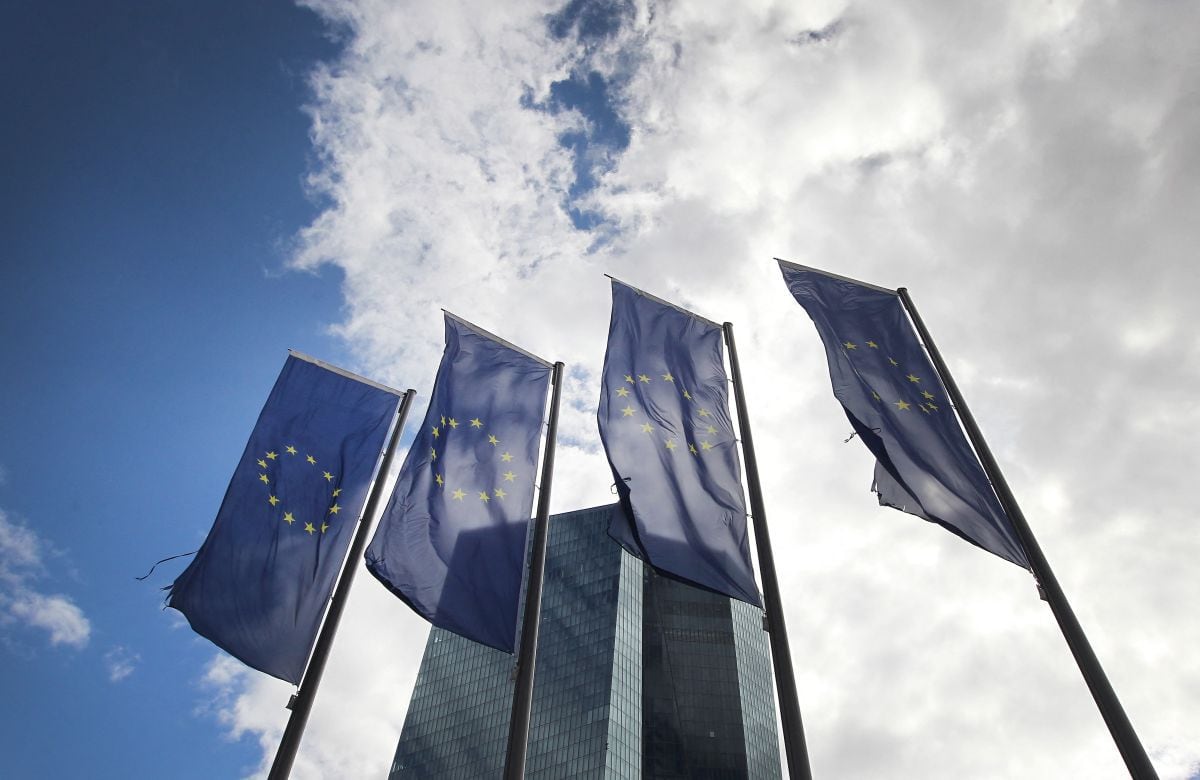
He European Central Bank (ECB) It celebrates its 25th anniversary on June 1, faced with the challenge of fighting high inflation without triggering the euro zone economy to go into recession.
Furthermore, the euro area must complete the banking union and make progress in the capital markets union in order to strengthen itself in crisis situations such as the global financial crisis and the sovereign debt crisiswhich did not kill her, but made her stronger.
For this reason, since 2014 the banking union has the sole supervision of the banks under the ECB’s responsibility and the sole resolution of bankrupt banks, so that the cost for the taxpayer is minimal.
But it remains to approve a common system for the protection of depositors. The European Commission (EC) presented in April 2023 a legislative proposal focused on small and medium-sized banks.
There is also work to be done on the capital markets union and on the fiscal sovereignty of the euro area as a whole, which does not exist yet and exists only in each Member State.
Now the priority is the fight against inflation
The President of the ECB, christine lagardeemphasized in the celebration on Wednesday of the 25th anniversary that the priority is for inflation to return to 2%.
The Information Director of AXA IM in Italy and member of the ECB bond market contact group, Alessandro Tentoriconsiders that it is possible that the economy “has entered a new regime, in which inflation is not only higher for longer, but also much more rigid than in the past.”
Therefore, the usual demand-driven tools might not be suitable.
“It is not clear that a recession is a sufficient condition to cool inflation,” Tentori said.
The ECB prepared the introduction of the euro
The ECB has been the guardian of the euro for 25 years, the currency officially used as a form of payment by almost 350 million euros. citizens in twenty European countries.
It was created on June 1, 1998 with the aim of preparing the introduction of the euro.
To celebrate these twenty-five years, Lagarde invited the main European political leaders and their predecessors last Wednesday Mario Draghi and Jean-Claude Trichet.
The first president of the ECB, the Dutch Wim Duisenbergwho presided over the entity from June 1998 until the end of October 2003, died on July 31, 2005.
It was the German chancellor, the Social Democrat Olaf Scholz, who was convinced that the euro is “irreversible” and that more countries will adopt the euro.
From the beginning they were in the euro Belgium, Germany, Spain, France, Ireland, Italy, Luxembourg, the Netherlands, Austria, Portugal and Finland and on January 1, 2001, Greece joined.
The launch of the euro in January 1999 as a currency for electronic transactions was followed in January 2002 by the physical introduction of the euro with the distribution of banknotes and coins for cash payments.
Slovenia became the 13th member of the euro area on January 1, 2007, followed by Cyprus and Malta a year later, Slovakia on January 1, 2009, Estonia on January 1, 2011, Latvia on January 1, 2014, Lithuania on January 1, 2015, and Croatia on January 1, 2023.
All ECB presidents face crises
Lagarde recalled at the ceremony that Duisenberg had to “Coping with the consequences of the September 11 attacks and the ‘dotcom’ crisis”.
His successor, Trichet, had to deal with the global financial crisis and the sovereign debt crisis, which Draghi inherited, who in turn also faced misgivings about the future of the euro area and, later, a prolonged period of inflation too low, an average of 1.2%.
Greece, Portugal and Ireland they were bailed out after investors charged exorbitant interest rates.
Spain obtained assistance for its financial system in exchange for carrying out reforms in its economy.
The bailouts did not let up the tensions in the markets against the euro, but Draghi stopped the speculation with a speech in London in July 2012, in which he made it clear that the ECB was prepared to do “whatever it took” to preserve the euro, that is to say to buy enough sovereign debt.
The differentials of the peripheral countries with those of the center immediately fell.
Lagarde has lived through the coronavirus pandemic and the shutdown of the economy, the invasion of Russia to Ukrainethe energy crisis and skyrocketing inflation of 4% on average.
(With information from EFE)
Source: Gestion
Ricardo is a renowned author and journalist, known for his exceptional writing on top-news stories. He currently works as a writer at the 247 News Agency, where he is known for his ability to deliver breaking news and insightful analysis on the most pressing issues of the day.












